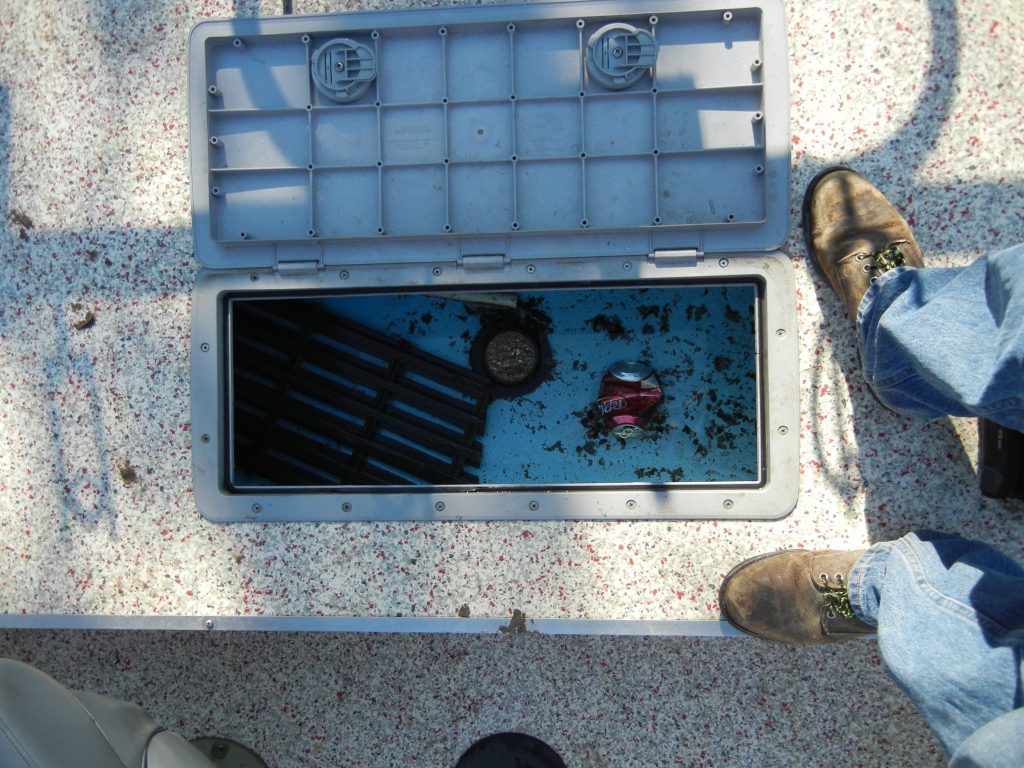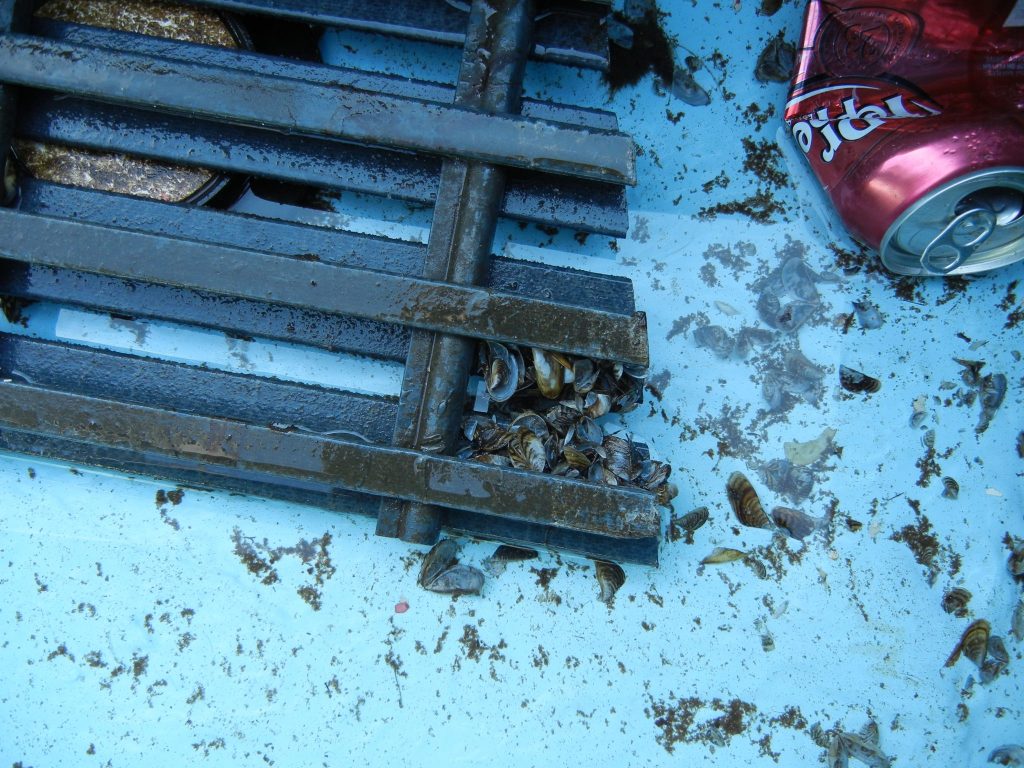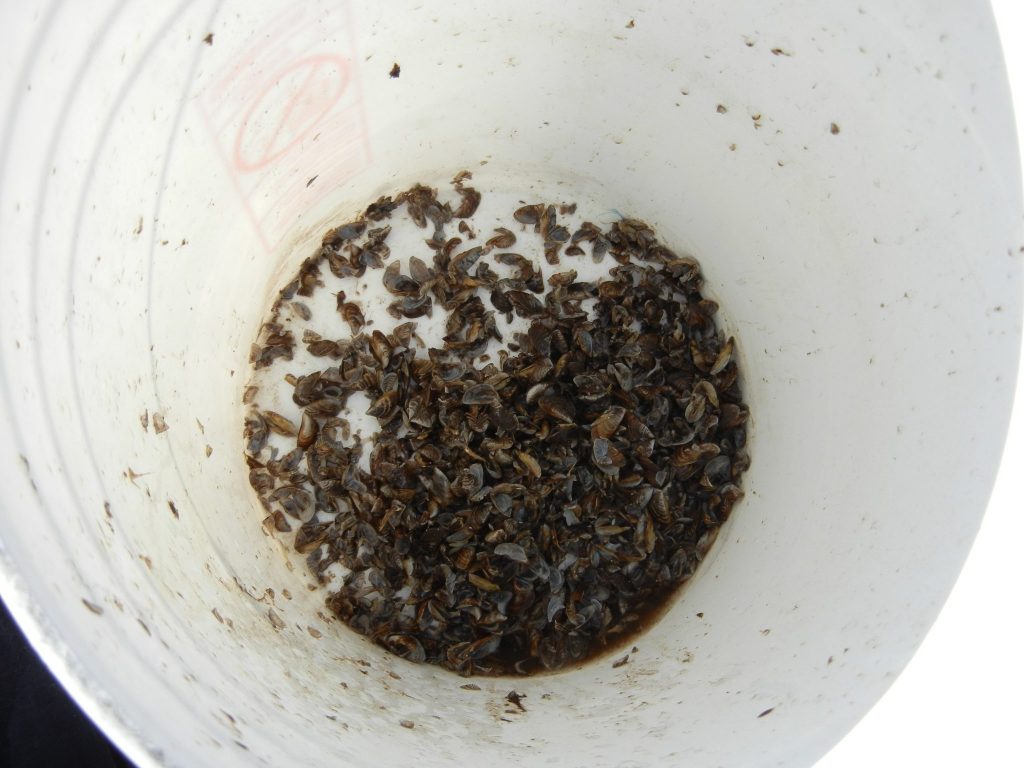This news release went out at the end of last week, so I fully realize many folks have already heard about this, but I want to make sure everyone hears about it!
Incident at Calamus is reminder to Clean, Drain and Dry
August 31, 2017
LINCOLN, Neb. – A recent incident at central Nebraska’s Calamus Reservoir is a reminder for all water users – especially boaters – to clean, drain and dry their equipment after every use, according to the Nebraska Game and Parks Commission.
A catfish tournament at Calamus attracted anglers from several states. A Game and Parks aquatic invasive species technician inspected the boat of a nonresident participant and discovered zebra mussel shells in the boat live well. The boat previously had been on a Kansas reservoir, and blue catfish caught there apparently regurgitated adult zebra mussels in the live well.
The boat, which already had been on the water, was impounded and decontaminated before being allowed to launch again on Calamus. Game and Parks believes the zebra mussels in the live well were dead and the risk of zebra mussels being introduced to Calamus was minimal.
“It is imperative that all anglers and boaters practice Clean, Drain and Dry of all their equipment, and that no lake or river water from any water body be transported to any other water body,” Game and Parks Fisheries Division Administrator Dean Rosenthal said.
Boaters should drain all water from their boat, including gas motors (tilt the motor up and down to help drain water from the lower unit). Use a towel to speed the drying of other areas on a boat, such as the live well. Boaters who plan to launch into a different water body within five days should spray all water storage areas with vinegar to assist in killing any young, microscopic mussels that might be present.
Anglers who plan to harvest fish should transport them on ice. It is illegal to transport any fish in water from any non-domestic sources.
Find additional information about aquatic invasive species, their threat, and what water users can do about them at stopaquatichitchhikers.org/.
I can add a few more details here in my blog. . . . We have a number of aquatic invasive species personnel working at boat ramps around Nebraska this summer. A huge part of their job is educating folks about aquatic invasive species, the risks, and what we all can do to prevent their spread. Those dedicated folks also do boat inspections and surveys. One of those technicians was working a boat ramp at Calamus Reservoir when a non-resident boat came off the water. Upon inspection, this is what was found in the livewell:
They were hauling empty Dr. Pepper cans!
No, take a closer look:
Those are zebra mussel shells.
The boat had already been on Calamus Reservoir!
Yes, that set off all kinds of alarms. The news release pretty much tells the rest of the story; the boat was impounded until it could be de-contaminated, and there were a bunch of zebra mussel shells in that livewell.
It appears all the zebra mussels were dead, that there was nothing left but the shells. However, that is of no comfort because clearly the Clean, Drain, and Dry protocol was NOT followed. Fines were assessed.
But, what about the water that had been in that livewell and transported from zebra mussel-infested waters into Nebraska? I do not even want to think about it.
As the zebra mussel scourge, and the scourge of many other exotic species being transported to waters where they do NOT belong, continues to spread, it distresses me that so many anglers and boaters are aware, but simply do not care. If everyone does not do their part, I will admit we may end up with zebra mussels and a bunch of other unwanted species spread to waters all over the country, all over Nebraska. I will also admit that the consequences of any exotic species invading, are hard to predict. However, I do know there will be negative consequences and we do NOT want ’em!
If this fatalistic, careless attitude about aquatic invasive species continues among some anglers, then it is going to be a self-fulfilling prophecy and OUR aquatic resources are going to suffer because of it. Our fishing is going to suffer because of it. Your fishing is going to suffer. My fishing is going to suffer, and I ain’t gonna be happy about it!
In my mind, there is not much difference between “I don’t care” and intentionally, maliciously moving invasive species around. That is one of THE biggest threats to our waters across the country and it keeps a lot of us fisheries professionals awake at night. Please do your part, CLEAN, DRAIN, and DRY, all the time, every time, everywhere!
The post What Keeps Fisheries Biologists Awake at Night appeared first on NEBRASKALand Magazine.


















